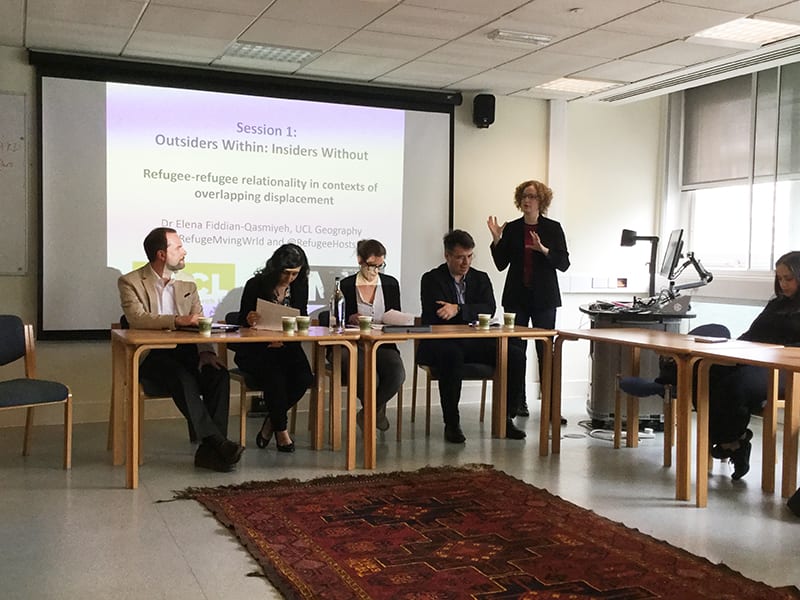UCL in the Middle East: a critical discussion
By By Guest Blogger, on 9 June 2017
By Dr Ruth Mandel, Vice-Dean (International) for Social and Historical Sciences

In an event sponsored by UCL’s Global Engagement Office, Professor Andrew Barry (Geography), Dr Elena Fiddian Qasmiyeh (Geography) and I brought colleagues together to launch a critical discussion about the fundamental problems inherent in the category of ‘Middle East Studies’ in particular, and area studies more generally.
In her ethnographically rich keynote talk, Dr Yael Nararro (Cambridge) described her recent research on the Syrian/Turkish border with a Muslim minority group. This was followed by a panel made up of four speakers whose topics ranged from historical analysis of provocative material pertaining to refugees in Greece who survived the Turkish War of Independence (Georgos Kritikos), the complexity of successively incoming layers of refugees in camps in Lebanon (Elena Fiddian Qasmiyeh), an analysis—spatial, photographic and political—of the devastation of neighborhoods of a Kurdish city in Eastern Turkey (Ulrike Flader), as well as a description of the rehabilitation through an invented ritual, designed to reintegrate Yezidi women and girls who had escaped from the violent captivity of Isis (Tyler Fisher).
Afternoon talks included Bev Butler’s presentation in which she raised questions about the myriad ways heritage is used and understood by different actors, particularly in the context of different refugee camps in Lebanon.
Other talks touched on research methods, ethics, and the political-history of oil.
Andrew Barry’s talk nicely closed the session by interrogating the inherent politics of entailed in decisions about oil pipelines, but also the cultural politics of seismic behaviour and research, and the observation that geological mapping and political mapping can be at radical odds.
A final summing up of the day’s themes tied together a number of issues. The huge ramifications of shifting and contested borders, for example, with political/cultural/economic/geological boundaries rarely mapping easily, raised the notion of a viewing the complex configurations as a palimpsest, with layers revealing the historical reverberations and remnants (Navarro) of multiple iterations of violence.
Moreover, with millions of refugees and exiles in Europe and beyond, the very notion of a geographically-bounded Middle East no longer is relevant in the way it once might have been.
This led to a discussion of digital migration and identities, transnational relations, and digital heritage coming to the fore in diasporic contexts. The metaphor of palimpsest arose, useful to the study of overlapping territories, people, reverberations and remnants.
 Close
Close

